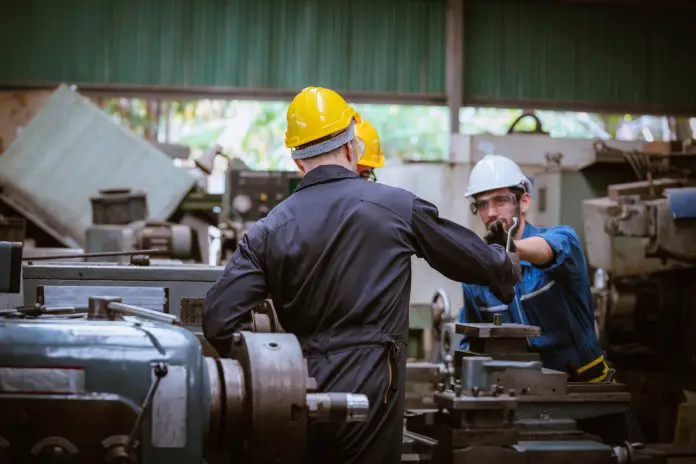Key Takeaways

- Understanding Manufacturing Challenges: Recognizing challenges such as supply chain disruptions, labor shortages, and quality control complications is essential for maintaining competitiveness in the manufacturing sector.
- Adaptation to Market Demands: Manufacturers must stay agile and adapt quickly to changing market demands and technological advancements to avoid losing opportunities.
- Effective Strategies for Success: Implementing lean manufacturing practices, utilizing automation and robotics, and investing in employee training can significantly improve operational efficiency and productivity.
- Emphasizing Sustainability: Incorporating sustainability initiatives not only reduces costs but also enhances brand reputation, attracting eco-conscious consumers.
- Embracing Digital Transformation: Leveraging digital tools like AI and data analytics enables manufacturers to optimize processes, improve decision-making, and respond effectively to market changes.
In today’s fast-paced world, the manufacturing sector faces a myriad of challenges that can impact efficiency and profitability. From supply chain disruptions to labor shortages, these hurdles require innovative solutions and strategic planning. As you navigate this complex landscape, understanding the specific challenges your industry encounters is crucial for staying competitive.
Manufacturers must adapt to evolving technologies and changing consumer demands while maintaining quality and cost-effectiveness. Whether you’re a small business or a large corporation, recognizing these obstacles is the first step toward overcoming them. Embracing change and leveraging new tools can turn challenges into opportunities for growth and success.
Overview of Manufacturing Challenges

Manufacturing challenges impact small businesses significantly. Supply chain disruptions emerge when materials or components become unavailable, affecting production timelines and leading to lost revenue. Labor shortages arise as skilled workers become harder to find, hindering your ability to meet demand.
Quality control complications occur when production processes change; maintaining standards while implementing new technologies requires constant vigilance. Cost management poses another challenge as fluctuating material prices can squeeze margins, making it tough to remain competitive.
Market demands shift rapidly, pushing you to adapt quickly. Staying current with trends is crucial, as failure to innovate can result in lost opportunities. Embracing change not only addresses these challenges but also positions your business for growth.
Utilizing data analytics can help you identify trends and inefficiencies in your operations. Investing in training and technology streamlines processes, enhances productivity, and prepares your workforce for future developments. By proactively addressing these challenges, you ensure a robust foundation for your manufacturing operations.
Key Manufacturing Challenges Today

Manufacturing faces several challenges that directly impact small businesses. Understanding these issues helps you navigate the current landscape effectively.
Supply Chain Disruptions
Supply chain disruptions pose significant hurdles for small businesses in manufacturing. Increased production costs arise due to delays in obtaining raw materials or components, forcing you to source from alternative suppliers that may be pricier. Extended lead times often lead to delivery delays, which can damage customer satisfaction and your brand image. Managing inventory also becomes complicated during disruptions; overstocking ties up capital, while understocking risks production halts.
Labor Shortages
Labor shortages directly affect your ability to meet production demands. Finding qualified workers becomes increasingly difficult, leading to decreased efficiency and elevated labor costs. Small businesses may struggle to compete with larger companies that offer better benefits or wages. Therefore, creating an attractive workplace culture and investing in employee training plays a crucial role in retaining talent and boosting productivity.
Technological Integration
Technological integration remains essential for small businesses to overcome manufacturing challenges. Adopting advanced tools and systems can streamline operations, improve productivity, and provide real-time data insights. Implementing technology enhances your ability to monitor supply chains effectively and manage workforce efficiency. By embracing innovation, you position your business to respond swiftly to market changes and customer needs.
Strategies to Overcome Manufacturing Challenges

Adopting effective strategies helps small businesses navigate manufacturing challenges successfully. Here are key approaches to consider in your operations.
Lean Manufacturing Practices
- Implementing lean manufacturing practices minimizes waste and maximizes efficiency. Streamlining production processes reduces costs and improves output. Conduct regular assessments of workflows to identify wasteful activities, such as excessive inventory or unnecessary motion. Emphasize continuous improvement through employee feedback and performance metrics.
Automation and Robotics
- Utilizing automation and robotics enhances productivity and precision in manufacturing. Invest in technologies that automate repetitive tasks, allowing your workforce to focus on more complex functions. Robotics can improve accuracy in assembly lines and reduce production time. Transitioning to automated systems can seem daunting, but starting with smaller projects can yield substantial benefits and encourage gradual adoption.
Employee Training and Development
- Fostering employee training and development ensures your workforce adapts to new technologies. Identify skill gaps and provide targeted training programs. Incorporating workshops focused on automation and new machinery assists employees in navigating changes effectively. Encourage continuous learning through partnerships with vocational schools or online platforms. Investing in training strengthens your team and enhances overall capabilities, positioning your small business for success.
Future Trends in Manufacturing

Manufacturers are increasingly adapting to emerging trends to stay competitive. These trends include sustainability initiatives and digital transformation, which play significant roles in shaping the future of the manufacturing industry.
Sustainability Initiatives
You can improve your small business’s impact by implementing sustainability initiatives. Many manufacturers focus on reducing waste and energy consumption, which not only benefits the environment but also lowers operating costs. Engaging in practices like using eco-friendly materials and optimizing energy usage can enhance your brand’s reputation. Companies that adopt sustainable practices attract conscious consumers, making your business more appealing in today’s market.
Digital Transformation
Embracing digital transformation is crucial for small businesses in manufacturing. Technologies like automation, artificial intelligence (AI), and data analytics streamline operations and improve decision-making. By adopting digital tools, you can enhance efficiency and respond to market demands promptly. Real-time data insights allow you to identify inefficiencies, adjust production schedules, and manage inventory effectively. As digital solutions continue to evolve, they offer small businesses like yours the opportunity to compete on a larger scale while maintaining quality and responsiveness.
Conclusion

Navigating the manufacturing landscape isn’t easy but understanding the challenges can empower you to make informed decisions. By embracing technological advancements and adopting lean practices, you can turn obstacles into opportunities.
Investing in employee training and staying attuned to market trends will enhance your competitiveness. Sustainability and digital transformation aren’t just buzzwords; they’re essential strategies for future success.
With the right approach, you can position your business not just to survive but to thrive in a rapidly changing environment. Your commitment to innovation and efficiency will pave the way for growth and resilience in the manufacturing sector.
Frequently Asked Questions

What are the main challenges faced by the manufacturing sector?
The manufacturing sector faces various challenges, particularly supply chain disruptions and labor shortages. These issues can lead to increased production costs, delivery delays, and difficulties in meeting customer demands, especially for small businesses competing with larger firms.
How can small businesses cope with supply chain disruptions?
Small businesses can manage supply chain disruptions by enhancing inventory management practices, building strong relationships with suppliers, and diversifying their supply sources. Implementing data analytics can also help businesses anticipate disruptions and adapt quickly.
Why is labor shortage a significant issue for small manufacturers?
Labor shortages limit the ability of small manufacturers to meet production demands and compete effectively. With larger companies often attracting qualified workers, small businesses must find innovative ways to recruit, retain, and train their workforce.
What role does technology play in modern manufacturing?
Technology is essential for overcoming manufacturing challenges. Integrating advanced tools can streamline operations, provide real-time data insights, and enhance productivity. Embracing automation and data analytics can significantly improve efficiency and decision-making.
How can small manufacturers implement lean manufacturing practices?
Small manufacturers can adopt lean manufacturing practices by analyzing their current processes to identify waste, optimizing production flows, and focusing on continuous improvement. Training employees on lean principles and utilizing feedback loops can further enhance efficiency.
What benefits do sustainability initiatives offer to small businesses?
Sustainability initiatives can lower operating costs, boost brand reputation, and improve environmental impact for small businesses. By adopting eco-friendly practices, manufacturers not only contribute to sustainability but also appeal to a growing consumer base focused on environmental responsibility.
How can small businesses prepare for future trends in manufacturing?
To prepare for future trends, small businesses should invest in technology that supports digital transformation, such as automation and artificial intelligence. Staying informed about market trends and consumer demands, while actively seeking training opportunities, will also be crucial for ongoing success.
Image Via Envato



